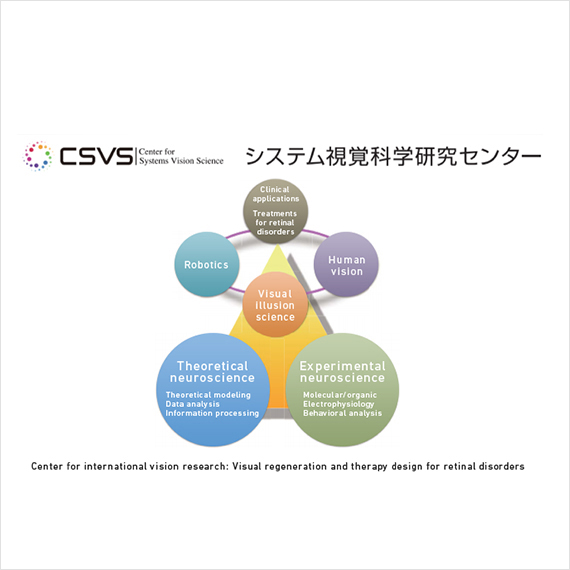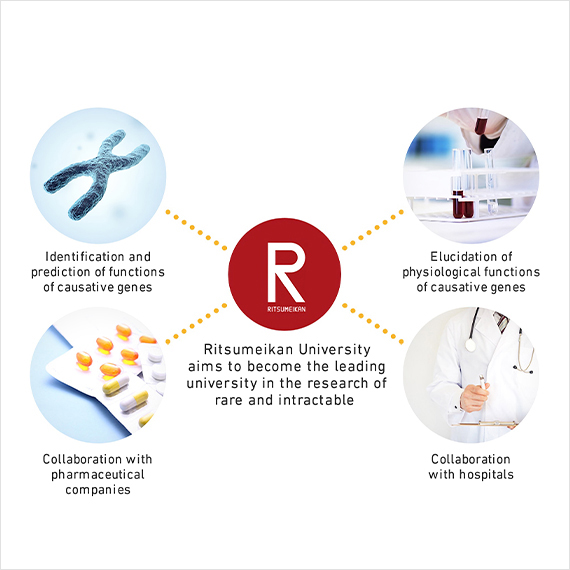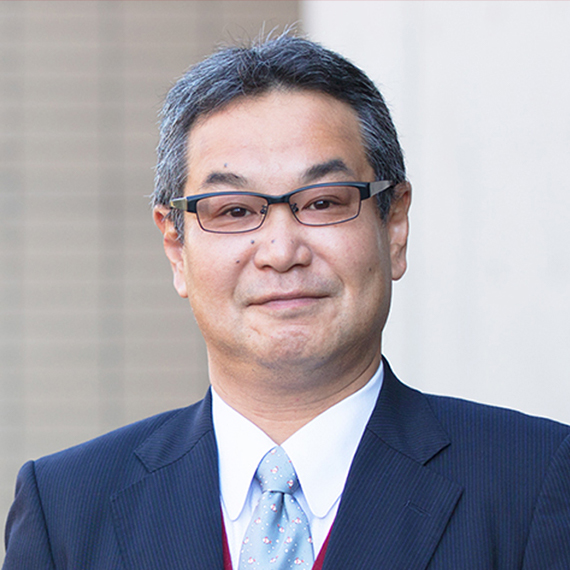RESEARCH ACTIVITIES
In addition to research activities in each academic field, we are promoting unique research projects in collaboration with other faculties and institutions.
-
Research topics
Research center
Center for Systems Vision Science
Research topic
Creation of an academic research hub for systems vision science for regenerating visual functionThe Center for Systems Vision Science, whose members include faculty from six colleges across two campuses of Ritsumeikan University, is Japan’s first center of interdisciplinary international joint research focusing on vision. In this center, researchers in regenerative medicine, experimental neuroscience, theoretical neuroscience, experimental psychology, and robotics are collaborating on a wide range of basic research to help usher in an era where Japan leads the world in clinical applications for visual regeneration.
In an aging society, visual impairments that progress with age lead to a loss of QOL and a shrinking labor pool. Through this research, we would like to contribute to society by working to maintain and improve vision, which is an essential factor for leading a long, healthy life.
(http://ivrc.jp/)
-
Research topics
Research project
Designated research, Takeda Science Foundation
Research period
2019 - 2023
Research topic
Integrated research on rare and intractable diseases—From basic research to the development of treatmentsRare diseases are not something we are used to hearing about. To raise awareness of rare diseases, the last day of February was designated as Rare Disease Day, and it was first observed in Sweden and other European countries in 2008. According to the Ministry of Health, Labour and Welfare, there are fewer than 50,000 people in Japan with rare diseases. All of these diseases are in great need of treatment, but because there is only a small number of patients who need treatment, efforts to ensure early diagnosis tend to make little progress, and the research and development of therapeutic drugs and medical devices is slow. Therefore, the College of Pharmaceutical Sciences and the College of Life Sciences has established a joint research framework in cooperation with hospitals and medical schools at other universities. This group, which began its activities in 2015, also collaborates with pharmaceutical companies in an effort to clarify the pathogenic mechanisms of rare diseases, develop diagnostic and therapeutic methods, and create therapeutic drugs. Specifically, the diseases we are studying are ciliopathy (including Fanconi syndrome), Rett syndrome, Prader-Willi syndrome, and nuclear envelopathies. I'm sure the names of these diseases are probably new to you. If you are interested and would like more information, please be sure to check our homepage(https://ritsumei-rarediseases.net).
Won’t you join us to learn more about these diseases?
-
Research topics
Research projects
Joint Research with the Drug Discovery Research Consortium, Tokyo Metropolitan Government Wet Lab Grant
Research period
2018 - 2023
Research center
Research Center for Drug Discovery and Development Science
Research topics
Research into new formulation technologies to support drug development and research into pharmacokinetic evaluation technologiesEven if a researcher discovers that a certain gene is related to a certain disease or that a certain substance is effective against a certain disease, this research does nothing more than gratify their ego if it cannot be delivered to patients in the form of medicine. A potential drug does not reach a patient as a medicine until pre-clinical trials have been conducted to explore its properties (e.g., how soluble is it in water? ), potential side effects and/or toxicity, and what happens to the substance once inside the body (pharmacokinetics) followed by a successful clinical trial. However, many substances fail their clinical trials. To increase the probability of success in clinical trials and aiming to improve the accuracy of predicting pharmacokinetics in humans in pre-clinical trials and to establish appropriate formulation methods, we have formed an industry-academia consortium with 49 domestic pharmaceutical companies and related companies (as of January 2020) and eight universities. We are currently conducting various joint research projects under the auspices of this consortium. We have also established the Biomedical Engineering Research Center with professors from the College of Science and Engineering and the College of Sport and Health Science with the aim of applying artificial biological models (e.g., multi-physiological systems, organ(s)-on-a-chip) using small intestine and liver cells differentiated from iPS cells to predict pharmacokinetics.
(https://www.ritsumei.ac.jp/research/center/drug_discovery/)
Principle Investigator: Takuya Fujita

